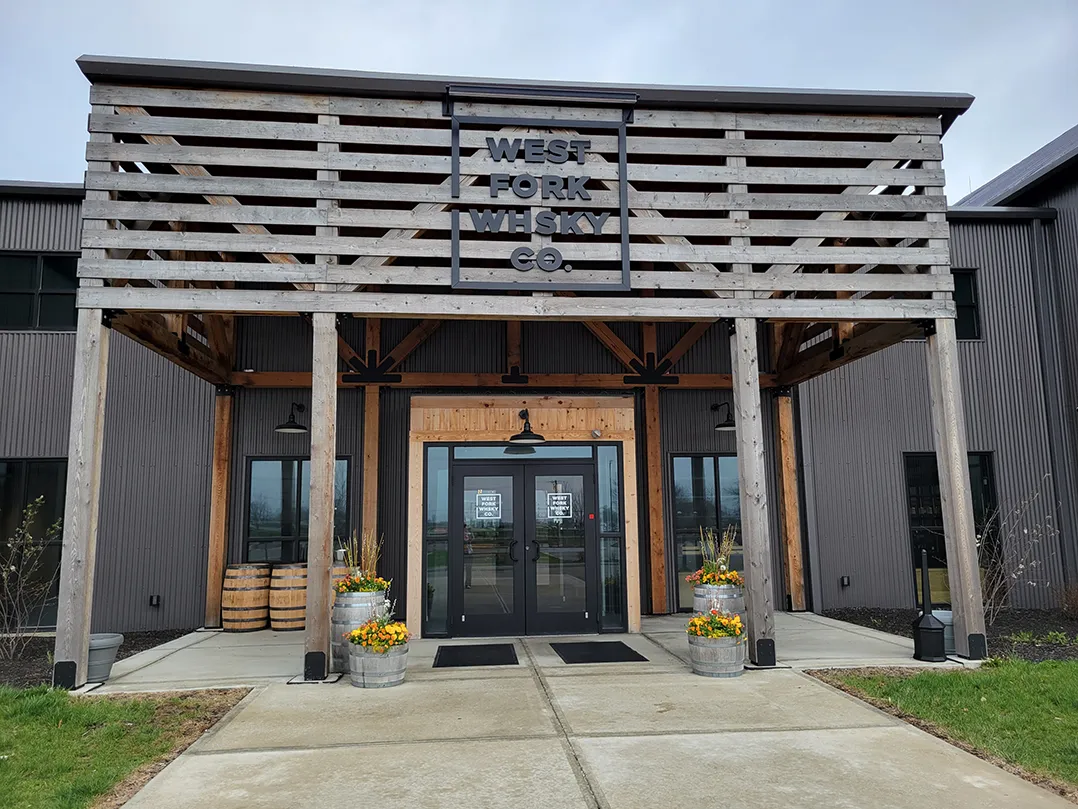Representatives from West Fork Whiskey came to Westfield’s Advisory Plan Commission in April with a village-centric plan for the land around the distillery on 191st Street.
In the months since, the development — featuring townhomes, an event center, green space and retail outlots — underwent multiple revisions, altering the number of total residences, green space allocation and the alignment of a commercial block along 191st Street. West Fork entered an agreement with M/I Homes, Inc. to create the community.

But despite a positive recommendation from the APC in July, the Westfield City Council denied the application Aug. 12, citing concerns about density of townhomes and the total commercial footprint.
The proposal — an amendment to the existing planned unit development that governs the 26 acres where West Fork Whiskey sits — received its first reading before the city council March 25, followed by a public hearing April 1 and two additional workshop meetings before receiving a positive recommendation from the APC.
West Fork proprietor David McIntyre said the distillery chose Westfield for its proximity to Grand Park, but also because Westfield is his hometown.
“We chose Westfield. We’ve invested well over $10 million into making Westfield our new home,” he said. “But when we chose Westfield, we certainly had plans to do more than just the facility we have today. We wanted to build a site where people could live, work and play.”
But despite more than a dozen revisions to the original plan that reduced residences from 160 townhomes to 110, increased commercial space and realigned the road into the development, councilors asked for additional changes to the plan that came for approval Aug. 12.
McIntyre said West Fork would make commitments to abide by requests of the city council, specifically reducing units to 105 total townhomes and the reorientation of one commercial building. But councilors were hesitant to approve the PUD amendment without those commitments included in the ordinance and site plan.
“The council as a legislative body when working with PUDs can impose reasonable conditions or require written commitments,” Chief of Legal Kaitlin Glazier said. “There are certain things that the council can ask and (the petitioner) can commit to, but I would say you can’t modify what the APC has approved.”
City officials disagreed that the commitments were enough, since the content of the PUD amendment could not be altered because it was approved by the APC. Mayor Scott Willis said the plans lack sufficient detail for approval as is.
“I think this process has been very discombobulated,” Willis said. “It’s been a moving target since it first came before us. There has been iteration after iteration. We have drawings that don’t match wordings. This has been a complete disaster. I think the project itself, from the city’s perspective, is appropriate. But I hope we don’t repeat this again, because this is not how we do development in Westfield.”
But Councilor Victor McCarty, who also sits on the APC, said there is precedent for approving the PUD amendment with commitments.
“It would be similar to what we already did this year with Ravinia (PUD) that made a commitment for a fishing pier that was requested, and also Townes at Union where additional masonry on the siding was requested,” McCarty said. “It would be very similar. It would just be an additional document.”
Approval of the PUD amendment failed by a 3-4 vote, with councilors Noah Herron, Chad Huff, Kurt Wanninger and Jon Dartt voting no, while councilors McCarty, Patrick Tamm and Joe Duepner voted in favor of the amendment.
The future of the request is unknown. City officials said they are open to discussing changes and bringing the PUD amendment back for a vote at a later date.




